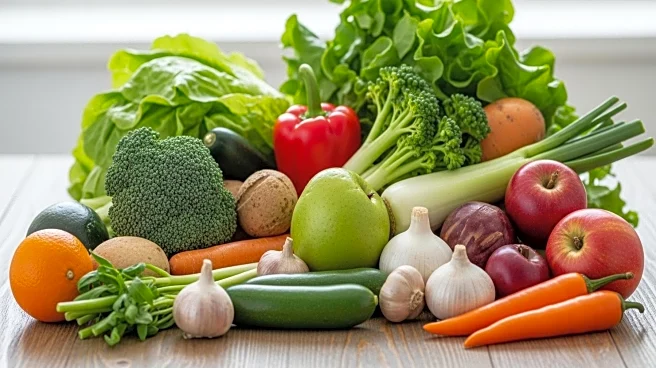What is the story about?
What's Happening?
The European Parliament has voted to restrict the use of terms traditionally associated with meat, such as 'steak' and 'sausage,' for plant-based products. This decision, supported by a vote of 532-78 with 25 abstentions, aims to reserve these terms exclusively for products containing meat. The move is part of a broader negotiation with the European Council and European Commission, set to begin next week. The initiative seeks to clarify labeling practices and prevent consumer confusion, following previous debates and legal challenges in the EU regarding the marketing of non-meat analogues.
Why It's Important?
This decision by the European Parliament could significantly impact the plant-based food industry, particularly in terms of marketing and consumer perception. By restricting the use of meaty terms, the EU aims to enhance transparency and prevent misleading labels, which could influence consumer choices and industry practices. The move may also affect U.S. companies exporting plant-based products to the EU, requiring them to adjust their labeling strategies. Critics argue that the decision overlooks existing legislation that already protects consumers from misleading labels, and may stifle innovation in the plant-based sector.
What's Next?
Negotiations between the European Parliament, European Council, and European Commission are scheduled to begin next Tuesday, where the specifics of the labeling restrictions will be discussed. Stakeholders in the plant-based industry, including NGOs like ProVeg International, are likely to continue advocating for more inclusive labeling practices. The outcome of these talks could set a precedent for similar regulations in other regions, potentially influencing global standards for plant-based product labeling.
Beyond the Headlines
The debate over labeling practices highlights broader issues of consumer education and trust in food production. As misinformation about food origins spreads, accurate labeling becomes crucial in fostering informed consumer choices. The decision also reflects ongoing tensions between traditional agriculture and emerging food technologies, raising questions about how best to balance innovation with consumer protection.















